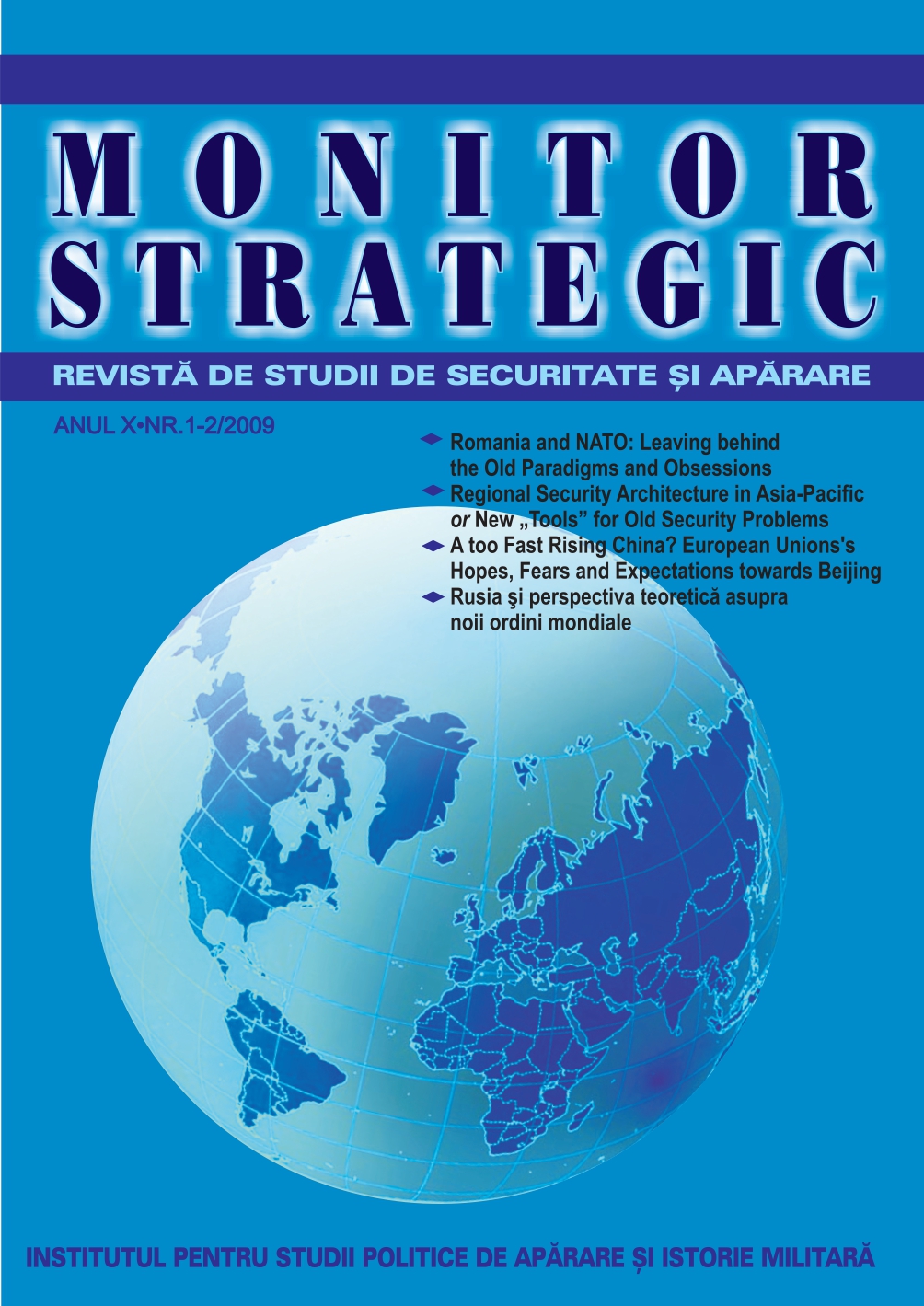Politica de securitate a Japoniei în perioada post-Rãzboi Rece
Japan’s Security Policy in the post-Cold War period
Author(s): Remus-Alexandru BradSubject(s): International relations/trade, Security and defense, Peace and Conflict Studies
Published by: Editura Militară
Keywords: Security Policy; post-Cold War period;
Summary/Abstract: After it stayed for almost 50 years in the shadow of United States, Japan, due to the new threats to its security such as: the offensive nuclear program of North Korea and China’s remilitarization, as well as for the necessity of adapting to the new realities of contemporary international environment, have started to reconsider its security policy. By adopting a new legislation, the Japanese government allowed its SDF to engage in UN peacekeeping operations, to offer tactical support and fuel to the coalition forces in the war against terrorism from Afghanistan and even to participate to the human assistance and reconstruction of Irak. In the same time, through different stages of negociations, the US-Japan alliance acquired a new dimension through the expansion of the geographical areas and range of missions SDF can undertake. Also, by encouraging an active dialogue and security exchanges with its most important neighboroughs: China, South Korea and Russia, Japan tries to consolidate a safe regional environment in South-East Asia.
Journal: Monitor Strategic
- Issue Year: 2009
- Issue No: 1-2
- Page Range: 59-66
- Page Count: 8
- Language: Romanian

